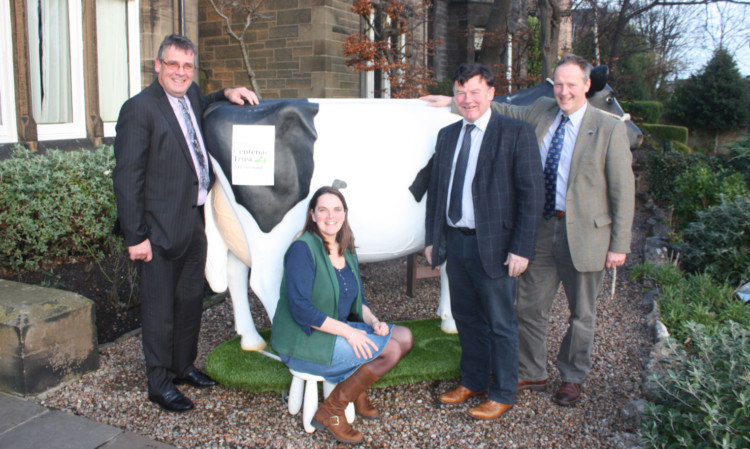NFU Scotland has marked its first 100 years in a number of notable ways, not least by means of a Centenary Trust which has already grant aided various educational projects to the tune of £124,000.
But for the organisation’s office bearers and staff the year will be memorable simply by reference to the extraordinary workload.
NFUS president Nigel Miller told a pre-Christmas press briefing in Edinburgh that many of the major issues will still be to the fore in 2014.
CAP implementation will need to be clarified and the Land Tenure debate to be chaired by Rural Affairs Minister Richard Lochhead will need to be scrutinised.
The independence referendum in September will also be a landmark but here NFUS is on less certain ground.
The official line is that the union will sit on the fence and not take a position for or against independence.
Mr Miller’s view, reiterated yesterday, was that he would continue to represent all members whether they were for or against Scotland going it alone.
He did, however, admit the last few weeks had put NFUS in an “uncomfortable place” with Defra secretary Owen Paterson giving Scotland such a poor allocation of CAP convergence funds and then saying that the position would be reviewed in 2017.
The implication would be that if Scotland was by that time independent there would be no chance of a favourable review or indeed any at all.
Mr Miller said that such a threat had never been openly made but it was in the background.
He said: “For the sake of the membership we will stay neutral on independence. We will take a two track approach with the first being to safeguard our future within the UK.
“But we will also work with the Scottish Government to pick up the challenges facing us now and work together for the benefit of Scottish farming.
“We do need to ask questions of both sides and we will be facilitating plenty of opportunities for members to do just that.
“The worst scenario in the referendum would be a low turnout and an indecisive result.”
Previewing the annual report, chief executive Scott Walker said the centenary year had produced a robust set of accounts with an operating profit of £21,572 compared to a loss of £6,269 in 2012.
Profit after taking into account taxation and investment income was £82,968 on a turnover of £2.66m. The 2013 balance sheet showed the members’ funds standing at £1.97m.
Mr Walker said the nomination period for vice-presidents had now elapsed and that the only two names proposed for the ballot in February were the present incumbents, Fife arable farmer Allan Bowie and Melrose livestock producer Rob Livesey.
There was also to be an ambitious recruitment programme over the next two years with a target of attracting an extra 1,000 members.
NFUS currently has around 8,600 members but Mr Walker pointed to the recruitment potential among the 15,000 VAT registered farming businesses in Scotland.
He said: “If you need an example of NFUS in action then look no further than our response to the decision of 2 Sisters to scale back the production of chicken in Scotland.
“Within days we had organised a meeting with affected farmers, supported the formation of Scottish Chicken Growers Association, put legal support in place and contacted all the major supermarkets.”
Turning to the Centenary Trust, NFUS director and treasurer George Lawrie said: “We have been raising money throughout this, our centenary year, with the fund now sitting around £185,000. This comprised of donations from members and charity fundraising around the regions.
“We have had three application rounds for funding this year, with the fourth application round closing late December 2013.
“To date we have grant-aided 27 projects to a value of £124,000, with as little as £300 to Borestane Primary School, Falkirk, to help with transport of schoolchildren to a local dairy farm, and the largest sum of £17,500 going to Royal Northern Countryside Initiative for the purchase of a mobile classroom allowing the farm to be brought to the school.”
Royal Highland Education Trust (RHET) project coordinator Sheila Bannerman was at the briefing yesterday and was presented with a fibreglass “milkable” cow which will be used as an educational aid on school visits.
